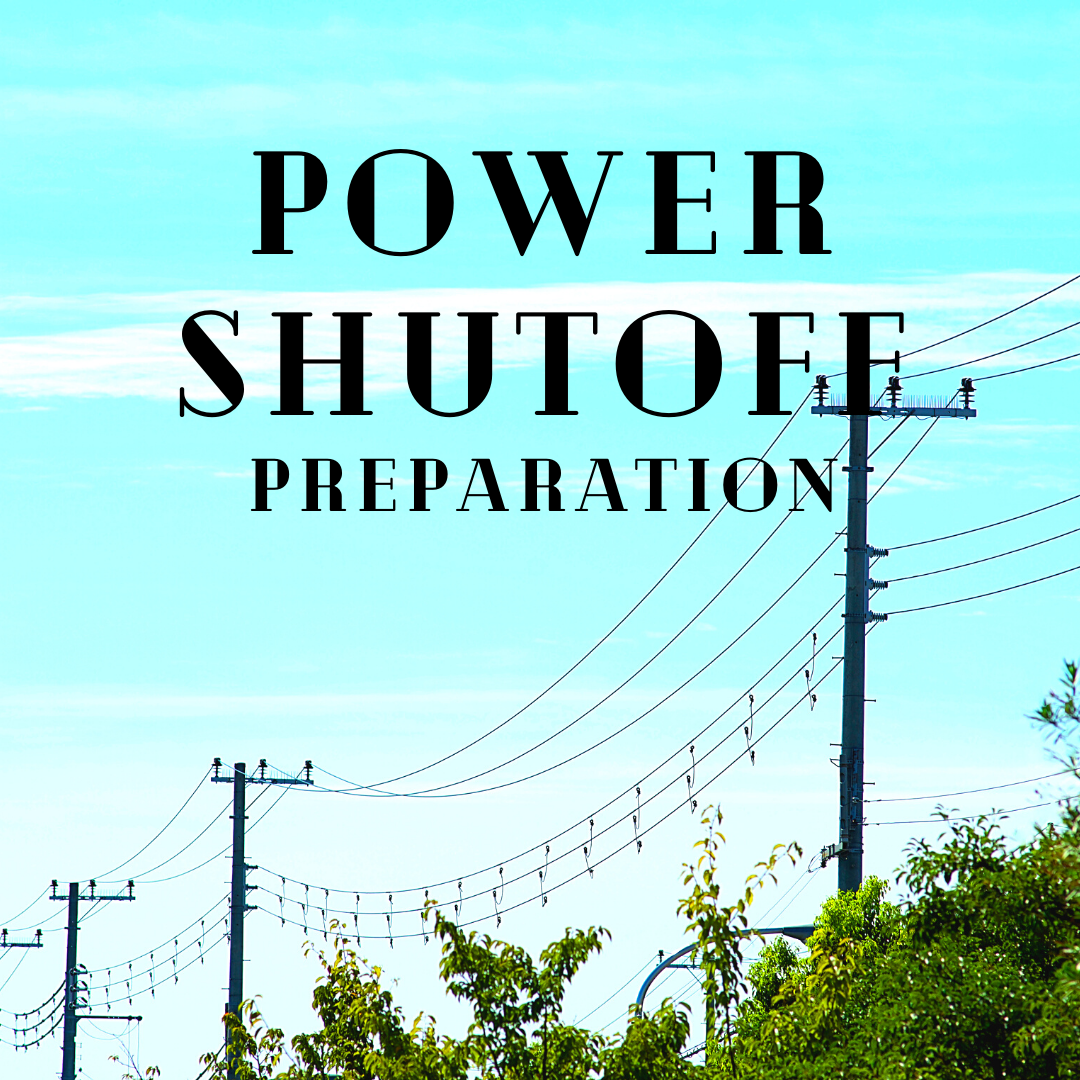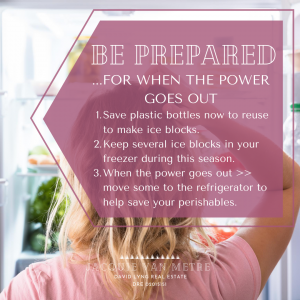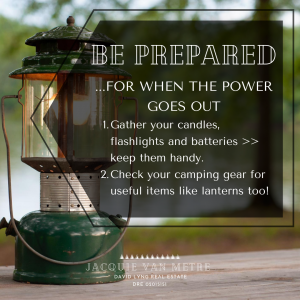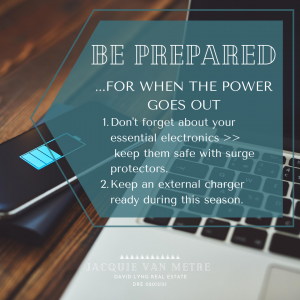Be honest, how prepared are you for power shutoffs this year?
The heat is rising with no rain in sight for months. Here we go again California.
Wildfire season is already tragically in full swing this year, with more to come without a doubt. With rising daily temperatures, high winds, lightning, human-caused sparks – our gorgeous golden state sits helpless against wildfires. In preparation for this season’s impending PG&E power shutoffs to combat these disasters, how can you best prepare your household? There are small things you can do today to make these power-less days a whole lot more comfortable and less stressful.
Tips to make 2020 power shutoffs slightly more tolerable!
1. LIGHT
First and foremost, we need some light! Spend a short time today finding your candles, flashlights, lighters and batteries so they are handy when you need them. Also, check your camping gear for useful items like lanterns and headlamps – these were great finds for my family last year.
2. FOOD STORAGE
To help keep your perishables cold plan ahead and make some ice blocks now. I have about 4 ready myself. I save a few plastic bottles (milk containers, Costco avocado oil bottle, etc…) fill almost to the top with water – to allow for expansion – and keep them in my freezer. When the time comes, I’ll be able to pop 2 or 3 ice blocks over to my refrigerator to keep everything cold. So simple and believe me it works!
3. GADGETS
Make sure you don’t go without your gadgets when the power is out for a few hours or a couple of days. You’ll want to be able to work and have some entertainment after all! We have some freshly charged up external power banks and cords readily available so we can charge up when needed. Usually we have these for travel, but they turned out to be a great inexpensive investment for these power shutoffs too.
4. COOKING
If you have a gas cook-top you’re in luck, you will be able to heat leftovers and cook food as usual. If you an electric cooktop, do you have a BBQ to use or a camping stove? Get creative here and make sure you have some fuel on hand. Plan for some meals now so you’re not scrambling for ideas when everyone is starving! And do make sure you have a long lighter to light the burners.

Check out PG&E’s website for Outage Notifications & more information:
https://www.pge.com/en_US/residential/outages/alerts/alerts.page
Tips from PG&E
Learn about preparation and response
We’re committed to delivering safe and reliable power to each of our customers every day. We constantly work to safeguard our electric system to minimize the risk of service interruptions. During the winter storm season, when outages may occur, our crews and emergency response teams do everything they can to keep the lights on. When storms result in interruption to your service, we do our best to restore service as quickly and safely as possible.
Staying prepared for power outages
You can take steps to minimize the safety risks and inconvenience caused by a power outage:
-
Keep important phone numbers, such as numbers of hospitals, fire departments, police, friends and relatives in a convenient location in case you need emergency help or other assistance.
-
Have a backup plan to maintain any life support equipment.
-
Keep a cellphone or hardwired, single-line telephone on hand. Cordless phones don’t work without electricity.
-
Keep a flashlight with extra, fresh batteries in a convenient place. Avoid using candles because of the fire risk. If you must light candles, use extreme caution.
-
Turn off heat-producing appliances such as ovens, stovetops and irons during an outage. This practice helps eliminate fire hazards that can occur when power is restored.
-
Protect sensitive electronic equipment such as televisions and computers with surge suppressors. Unplug any such equipment that is in use when the power goes out.
-
Ensure that food stays cold by keeping your refrigerator and freezer doors closed. You can keep the refrigerator cold by placing ice in plastic containers inside it. A full freezer stays colder, longer.
-
Keep nonperishable food that doesn’t require cooking on hand. Ensure that you have a manual can opener.
-
Inform us if you have a generator, and avoid using it unless you’re sure that it was installed safely and correctly. An incorrectly installed generator can damage your property. It can endanger you, and potentially harm our line workers who may be working on nearby power lines. Read about the safe installation of generators. Visit Electric Generator Safety.
Let me know if you have any additional tips to share!


 Facebook
Facebook
 X
X
 Pinterest
Pinterest
 Copy Link
Copy Link





